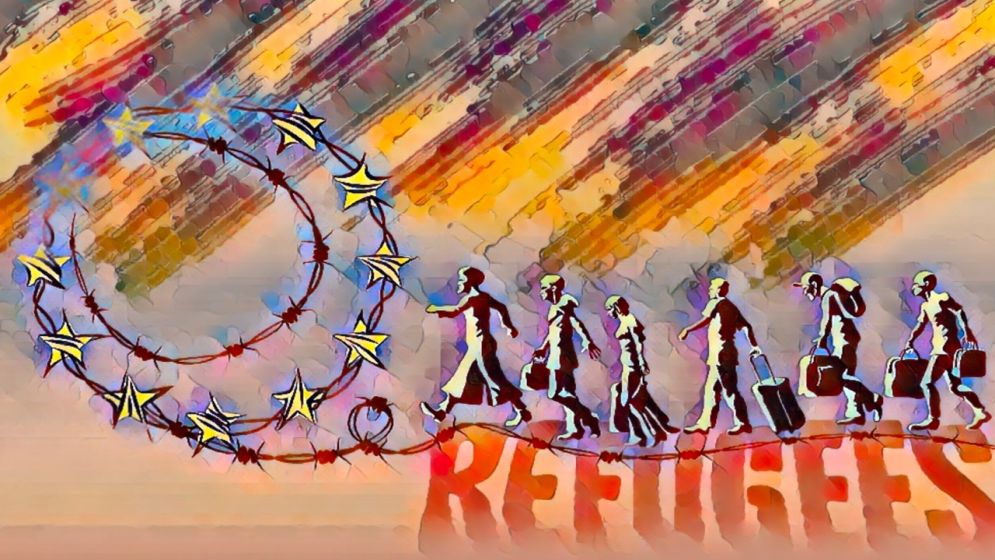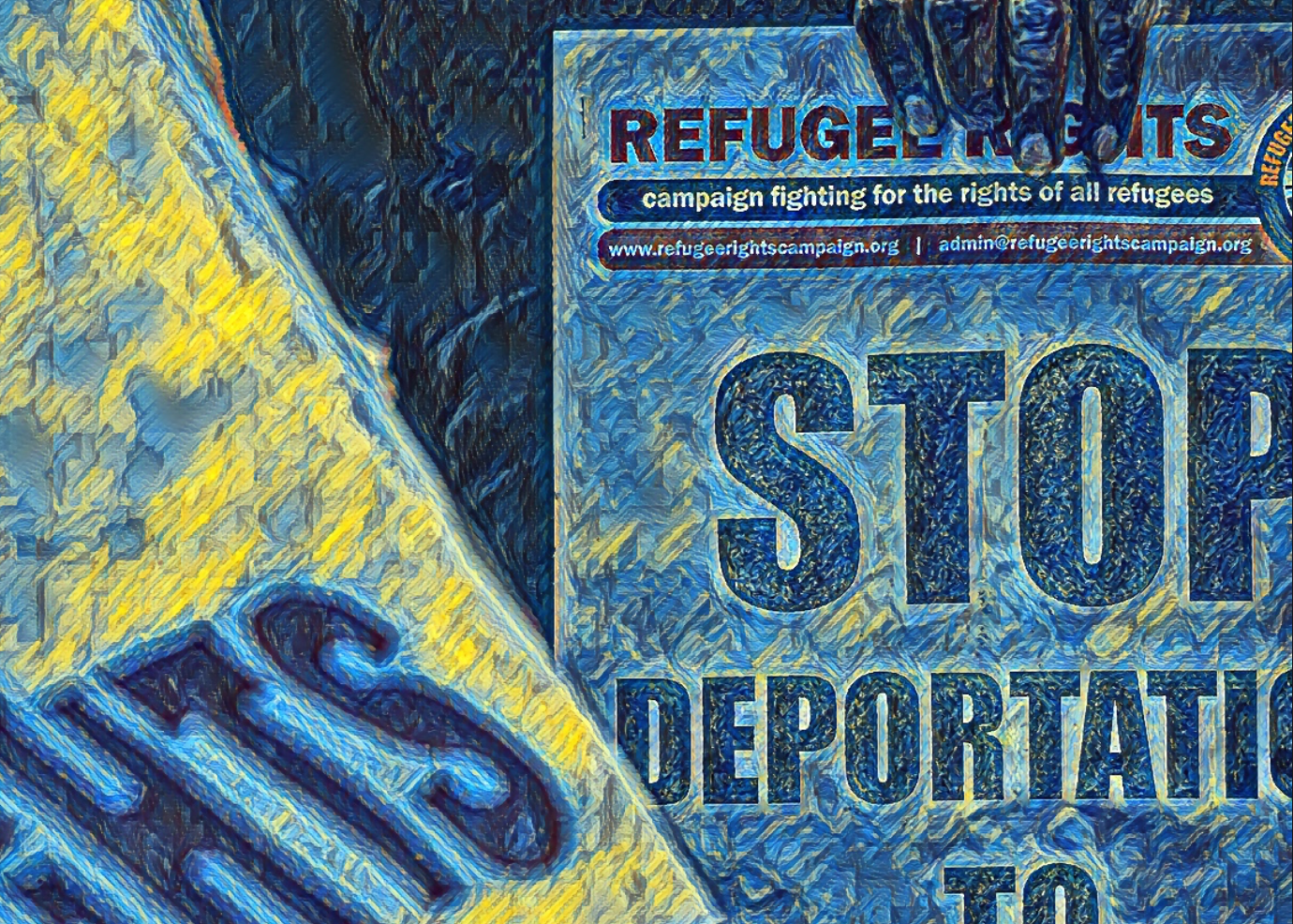Bangladesh on EU’s ‘Safe Country’ list, prompting fears over asylum access

In a move that could reshape the future of asylum-seeking South Asians in Europe, the European Commission has proposed a new list of "safe countries of origin"-- a designation that includes Bangladesh– as part of its broader effort to tighten migration and asylum rules across the continent.
The proposed list, a first of its kind, which also features India, Egypt, Morocco, Tunisia, Colombia, and Kosovo, would allow European Union member states to fast-track and potentially reject asylum applications from nationals of these countries.
The Commission argues that citizens from these nations do not typically face persecution or serious harm, and therefore do not qualify for international protection under EU asylum law.
While the designation does not automatically bar individuals from seeking asylum, it does shift the burden of proof. Applicants from "safe countries" must now present compelling evidence to support their claims, challenging the presumption that they are not at risk if returned home.
The proposal comes amid a sharp rise in asylum applications, particularly from Indian nationals, whose numbers have surged nearly 400 percent over the past five years across the EU.
Though the Commission did not cite a similar spike from Bangladesh, the inclusion of the South Asian nation on the list has drawn attention in Dhaka, where officials have yet to formally respond to the development.
“The Commission is proposing to establish a first EU list of safe countries of origin,” the body said in a statement released in Brussels.
“Some member states already maintain national lists… An EU-wide list will support a more consistent and uniform application of the concept across member states.”
For many Bangladeshi migrants, Europe has long represented a land of opportunity — or, for some, an escape from poverty, political unrest, or environmental vulnerability.
In recent years, a steady flow of undocumented Bangladeshis has attempted the treacherous journey to Europe, often via North Africa and the Mediterranean, despite growing crackdowns and rising risks.

Concerns over human rights
Human rights advocates have expressed concern that the new designation could lead to blanket denials of legitimate asylum claims, especially in cases involving minority groups or political dissenters.
“The assumption of safety can be deeply misleading,” said one Dhaka-based migration expert. “Conditions vary dramatically within countries like Bangladesh, and applying a single label overlooks the complex realities on the ground.”
The European Parliament and member states must still approve the proposal. If passed, it could come into effect later this year, further narrowing the options for asylum seekers from Bangladesh and other listed countries.
Though this would mark the first EU-wide list of its kind, many member states have long relied on national-level designations to fast-track asylum procedures.
According to the European Union Agency for Asylum (EUAA), 19 EU countries already maintain their own safe country lists, while non-EU states like Norway, Switzerland, and Iceland — part of Europe’s broader migration architecture — also apply similar policies.
Should the proposal gain consensus across EU institutions, it could reshape the asylum landscape for South Asian applicants. For Bangladeshis — more than 41,000 of whom applied for asylum in the EU in 2024 — the consequences could be even more pronounced.
Under the new designation, nationals of “safe” countries would be presumed not to require international protection, with their applications processed under an accelerated system and more likely to be rejected.
Rights groups warn this risks creating a de facto barrier for thousands who may still face economic desperation, climate vulnerability, or political instability back home.
Europe’s current migration challenge remains driven in large part by long-standing crises. In 2024, total first-time asylum applications fell by 13 percent, down to 912,000 from more than a million the year prior.
Yet Syria, Venezuela, and Afghanistan continue to top the list of origin countries, with 148,000, 72,775, and 72,155 asylum applications respectively, according to Eurostat.
Bangladesh ranked among the top contributors outside conflict zones, alongside Colombia, Egypt, and Morocco– all of which are also included in the proposed EU list.
In 2024, 50,330 Colombians,
23,940 Egyptians, and 22,630 Moroccans sought asylum across EU member states.
For many of these applicants, the safe country label would likely result in
swift rejection.
Where lies the implication?
Altogether, over a tenth of all asylum applications submitted in 2024 could be processed under the new “safe country” mechanism if the proposal is adopted.
With more than 1.24 million cases currently pending in the EU system, the move is being framed by Brussels as a pragmatic solution to an overloaded bureaucracy.
But critics argue the human cost may be steep — particularly for countries like Bangladesh, where legal protections for marginalized groups remain inconsistent, and economic migration often intersects with deeper vulnerabilities.
The political climate within the EU has also grown increasingly resistant to new arrivals. Migration policy remains one of the most polarizing issues across Europe — a dynamic that has played into the hands of far-right parties gaining traction in several key member states.
In Germany, Chancellor Angela Merkel’s decision to admit more than one million refugees in 2015 — a move lauded globally for its humanitarianism — also paved the way for the rise of the Alternative für Deutschland (AfD), a far-right party that is now one of the largest in the Bundestag.
France has seen similar trends, with Marine Le Pen’s National Rally emerging as the frontrunner in early polls ahead of the 2027 presidential election. In the Netherlands, Geert Wilders’ Party for Freedom, known for its anti-immigration rhetoric, is now part of the ruling coalition in The Hague.
Analysts view the safe country proposal as part of a broader EU strategy to preempt further electoral gains by the far-right — a balancing act between political expediency and international commitments to asylum protections.
For Bangladeshis seeking hope abroad, the message is growing clearer: Europe’s doors are narrowing, and the journey to safety may be harder than ever before.
—-

